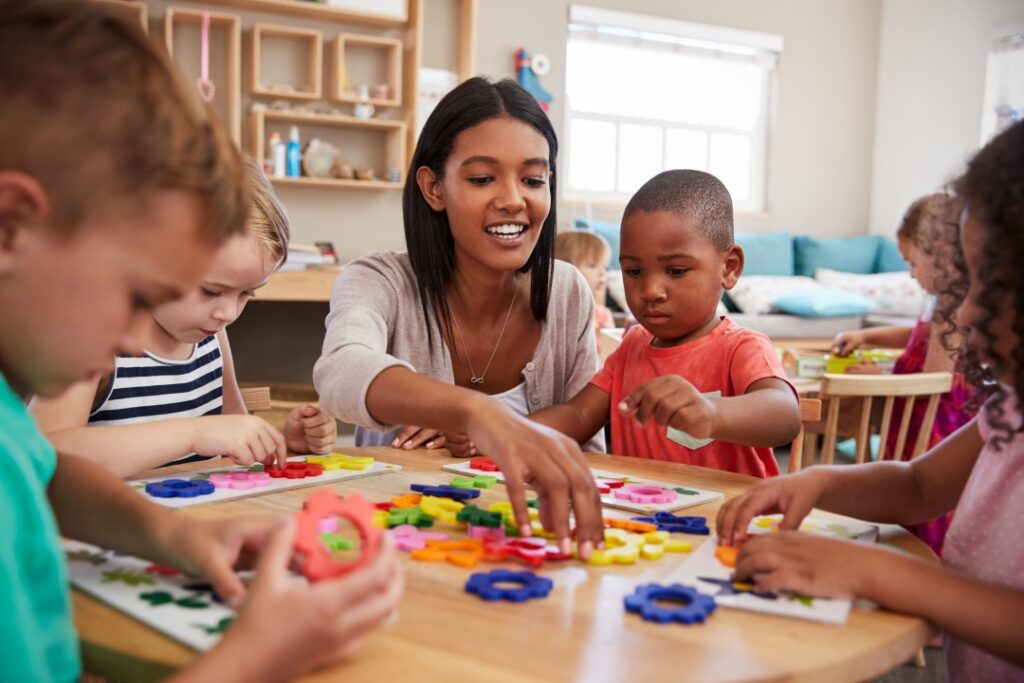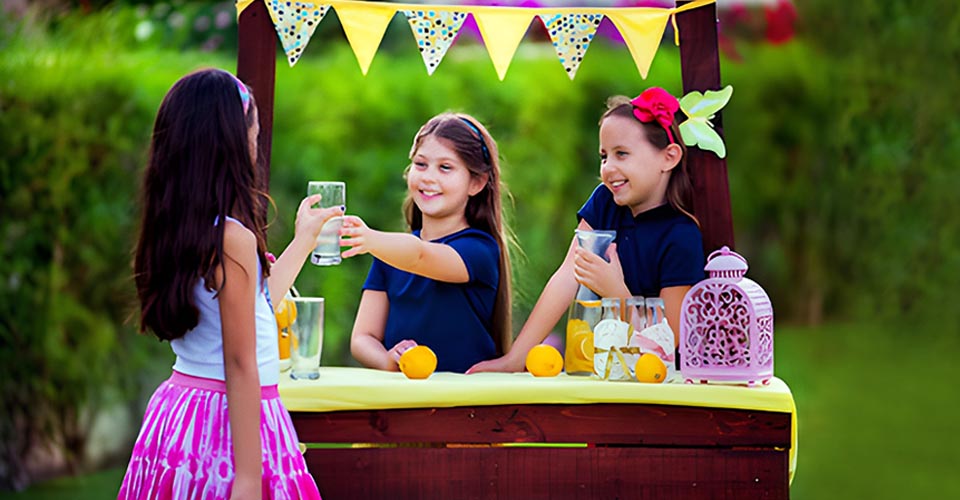One of our most crucial responsibilities as parents is to help develop positive social skills in children.
An individual’s social skills that are positive establish a foundation for their ability to have interactions with others, deal with emotions, and face new situations with confidence and strength.
This article will look at why it is important to develop positive social skills in children and give you some practical ways how to develop positive social skills in children.
Consequently, these tactics will help your child become socially competent enough to lead a satisfying life.
So, let’s dive in!
Why Positive Social Skills Are Important?
Social skills are more than just a set of polite behaviors—they are the building blocks of strong, healthy relationships and a fulfilling life.
Here’s why you need to develop positive social skills in children:
1. Creating Satisfying Attachments
Good social skills enable children to effectively interact with others. When children know how to talk so that they will be understood, listen attentively, and show compassion; they are well placed to foster and retain friendship ties.
Emotional support and social growth are some of the reasons why these relationships are important. By teaching our kids the importance of kindness, respect, and cooperation we enable them to make friends for a lifetime.
2. Enhancing Academic Success
It may sound strange but one’s academic success is closely linked to his or her social skills. Children who can work together with colleagues, articulate their thoughts, and resolve conflicts have a higher chance of actively participating in class discussions as well as making group presentations positively.
Therefore inculcating these skills will go along way in enabling our children to excel academically while at the same time learning the importance of good teamwork and communication skills.
3. Boosting Self-Esteem
When kids acquire positive social skills, they often feel more relaxed about interacting with others. This confidence may lead to improved self-esteem as well as a better self-image on their part.
Parents can facilitate this process by giving their children opportunities to practice such behaviors and recognizing their efforts verbally. As a result, a child who feels comfortable relating socially is likely to take on new challenges with an optimistic attitude.
4. Promoting Emotional Well-Being
Social intelligence largely involves understanding own emotional state plus controlling it when dealing with other people’s emotions.
When children understand their feelings alongside those of other individuals they are better armed against stress, anxiousness or even anger management problems.
Instructing our offspring on positive ways through which they can express themselves without harm while using sympathy when handling social situations adds up to resilience building as well as emotional intelligence development for them.
5. Preparing for the Future
Today’s world is characterized by an increased need for stronger social skills than ever before. Thus your child must have the ability to communicate well with people not only when dealing with teachers but also in extracurricular activities and when they go into employment.
Therefore, by teaching our children these techniques early enough we are enhancing their chances of succeeding in all spheres of life.
By so doing, we are actively encouraging our kids to develop meaningful relationships, perform better in class, and ultimately become well-rounded individuals.
So how to do it?
Read More: 10 Effective Ways to Help Adolescents Deal with Mood Swings During Puberty!
6 Helpful Tips to Develop Positive Social Skills in Children
Here are six practical tips to develop positive social skills in children:

1. Demonstrate Positive Behavior
Children often learn through watching grownups around them. One of the best ways to develop positive social skills in children is to model it yourself.
Your child should see how he/she is supposed to behave when interacting with others in various situations. This could be done through good conversation, attentive listening or empathy; all these are a strong lesson as learned by example.
Such behaviors exhibited daily help your child understand how to tackle social situations calmly, confidently, and well-manneredly. Doing so becomes a model for their engagement with the world.
2. Make opportunities for social interaction
A variety of interactions helps children hone their skills in socialization; therefore, giving them numerous opportunities to do so. This will help develop positive social skills in children.
Accordingly, arrange play dates, encourage participation in group activities like clubs/teams, or engage in community events where they can meet new peers.
Therefore, such ties provide real-life situations through which your child may learn communication cooperation, and conflict resolution.
The more they practice the better skilled and comfortable they will become in different social settings. Through such exposure, they build resilience and adaptability towards their social interactions.
3. Teach Empathy and Emotional Understanding
One of the ways to develop positive social skills in children is to develop emotional understanding in your child. In real-life examples talk openly about different emotions and try to find out how people feel under different circumstances.
Playing out some scenes or reading books that address issues related to emotions is another way of making teaching empathy enjoyable too.
By understanding others’ perspectives and responding accordingly, your child will develop a deeper sense of compassion which will further enhance his/her ability to create and maintain meaningful relationships.
4. Practice Communication Skills Jointly
Engage in activities that encourage effective communication, like storytelling, discussing daily experiences or playing games that require verbal interaction and active listening.
Provide constructive criticism and commend your child when they have communicated successfully and listened carefully. Encourage them to inquire, evince interest in others’ statements, and learn how to explain their thoughts precisely.
These activities will help your child understand the importance of respectful and open communication; thus enhancing confidence as well as competence in social interactions.
5. Set Up Positive Social Scenarios
Create environments where your child can practice this will help develop positive social skills in children. For example, facilitate a small group activity with friends or members of the family, or assign distinct roles during a game that requires teamwork and cooperation.
Such scenarios allow your child to develop skills like sharing, taking turns, and problem-solving in a supportive environment. This managed environment helps them handle different kinds of social situations while getting directions from caring adults.
6. Reinforce Positive Social Behavior
When your kid portrays good social behavior such as kindness, helping another kid out or handling an argument calmly; recognize and praise his efforts.
Positive reinforcement methods such as verbal praise or small rewards motivate children to continue practicing and enhancing their social skills.
By consistently reinforcing good practices you help your children make these behaviors part of themselves motivating them towards integrating these patterns into their everyday dealings with people.
Integrating these tips into how you parent can go a long way toward assisting your children to develop a strong aptitude for socialization.
Read More: 10 Important Parenting Lessons Every New Dad Should Know!
A Word From Mind Family
At Mind Family, we understand why we as parents need to develop positive social skills in children. Encouraging these skills is not just about teaching manners.
These efforts will help your child thrive in their interactions with others, boost their self-esteem, and prepare them for a fulfilling future.
Remember, the journey to developing positive social skills is ongoing. It requires patience, consistency, and encouragement. At Mind Family, we’re here to support you every step of the way on this rewarding journey.
Frequently Asked Questions (FAQs)
Why are positive social skills important for children?
Positive social skills help children build strong relationships, succeed academically, boost self-esteem, manage emotions, and prepare for future interactions in various settings.
How can I model positive social behavior for my child?
Demonstrate respectful communication, active listening, and empathy in your daily interactions. Your behavior sets an example for your child to emulate in their own social encounters.
What are some ways to create social interaction opportunities for my child?
Arrange playdates, encourage group activities, and involve your child in community events. These opportunities help them practice and enhance their social skills in real-life situations.












Leave a Reply